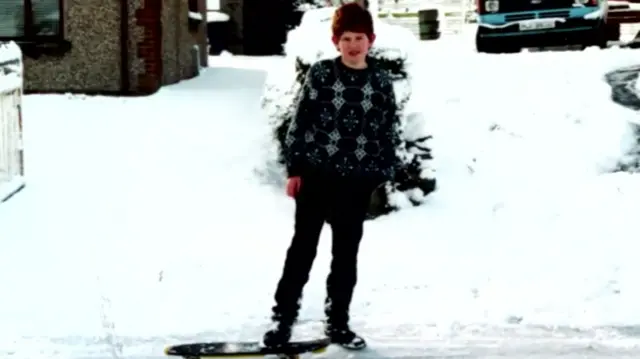'Ann was a wonderful and very, very caring person'published at 14:30 GMT 4 February
Stanley McCombe's statement starts by describing how he and Ann had just celebrated their 25th wedding anniversary at the time of her death.
To try and express the loss in our lives is impossible," he says.
"We only hope to express the great person that Ann was and the loss in our lives since the Omagh bomb.
"Ann was a wonderful and very, very caring person and I suppose that is why I fell in love and married her.
"I think she was the kindest-hearted person that I ever known, and she cared for everybody."
Mr McCombe's statement describes Ann as a good Christian who loved her church, her family and everyone around her.
